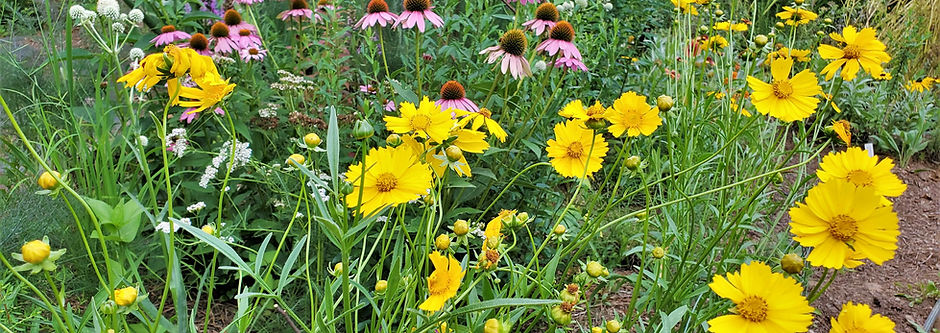Plant Native Fruiting Trees in Public and Private Spaces
- ljmarkson
- Dec 8, 2022
- 3 min read
Earth friendly Steph and Josh of Atlanta aptly expressed their gratitude to nature on Thanksgiving Day by adding 46 native Georgia fruit trees and bushes at Zonolite Park. Thanksgiving also falls in the late fall and early winter sweet spot for planting trees in Atlanta.

I originally met the couple when they toured the park with Pat Reynolds, an energy force behind the ongoing effort to remove invasives and add thousands of native plants back into the park. They met beforehand to make sure the native trees they were purchasing with a Nickelodeon grant through ChangeX (funded by Microsoft) would go where they would thrive.

It turned out being mindful of finding the right place for each plant worked in Zonolite’s favor because so many of the native fruiting trees and shrubs they sourced from North Georgia Native Plant Nursery in Canton would naturally grow in a bottomland forest area similar to Zonolite woods.

Zonolite Park’s unique restoration history makes it an ideal park for aspirational replanting. A little more than a decade ago, South Fork Conservancy worked with a coalition of federal, state and local organizations, including the Georgia Native Plant Society, to turn what was once an industrial wasteland contaminated by asbestos into a 13-acre urban sanctuary filled with native plants.

Twice a month small new spaces are opened in the wooded areas when the loyal Friends of Zonolite Park group cuts invasive privet for Zoo Atlanta to pick up and feed to giraffes and goats. It was providence that a much larger void had recently opened in the park. For some unknown reason county workers didn’t follow the policy of letting trees remain where they fall in natural areas. Instead, they waited almost half a year then removed a massive fallen tree along with an extensive area of the restored surrounding underbrush. When they were done, they left a huge, bare, unnaturally sunny area in the middle of the wooded area of the park. This problematic situation became a blessing because the native understory fruit trees Steph and Josh intended to add to the park needed a bit of sunlight - and have become a healing gift for this space.

In addition to restoring the ecosystem in urban areas in an ecologically sustainable way, there are many additional benefits to a public fruit initiative using native trees. Native fruiting trees also reduce stormwater runoff, sequester carbon, and are a component of an urban food web. Fruiting trees and shrubs are pollinator friendly, sustain birds and animals where they are planted, and are host plants for the butterflies, moths and the insects that birds and wildlife depend on to feed their young. There’s also evidence that fruits of native shrubs are of greater nutritional value to migrating songbirds than the fruits of invasive shrubs.

Josh and Steph are also embracing the value of connecting local communities through the shared purpose of planting, learning about, caring for, and harvesting publicly accessible fruit. We’ll see more of Steph and Josh at Zonolite during the year as they plan to check in on the plants and give free tours to teach community members of all ages the benefit of adding native fruit plants to public and private spaces to increase local biodiversity. Josh is part of a movement of sustainable urban foragers who are reclaiming the idea of public urban greenspaces as a food source. He is working to deepen the connection with the plants and animals in the Georgia Piedmont.

Zonolite is an iNaturalist site, and Steph and Josh also plan to add photos of the leaves, flower and fruit of the native fruiting trees to help folks learn how to care for them, as well as responsibly harvest and prepare the fruit.

I’m inspired by Steph and Josh’s efforts to get more native fruiting trees in the ground in Atlanta. The diverse trees and shrubs they added to Zonolite was an impressively fantastic selection! They are also weaving together the edible landscape and native plant trends currently reimagining what landscaping needs to be for a future where every inch of nature is precious. They embody the spirit of the Chinese prover "The best time to plant a tree was 20 years ago. The second-best time to plant a tree is today".

Note - there are no affiliate links in this blog. Please click the highlighted text throughout the posts for links to details, explanations, references, worthy organizations or businesses, or examples that might be helpful.


.jpg)
